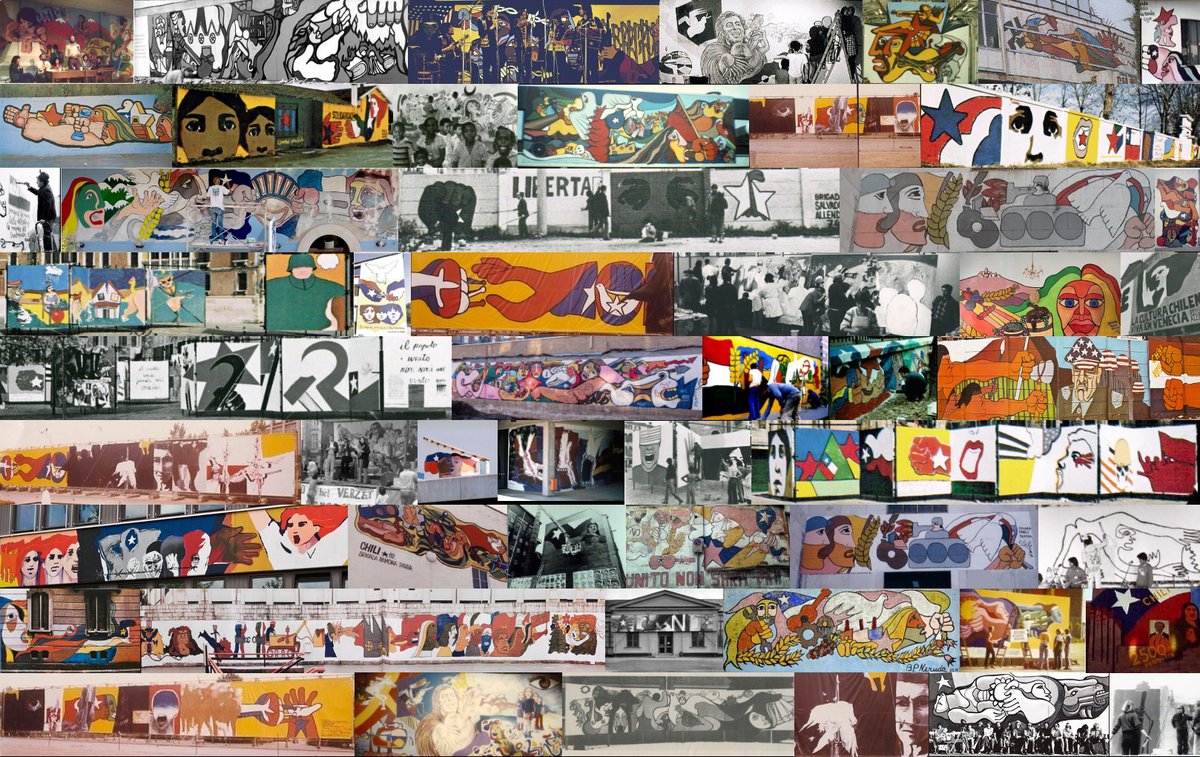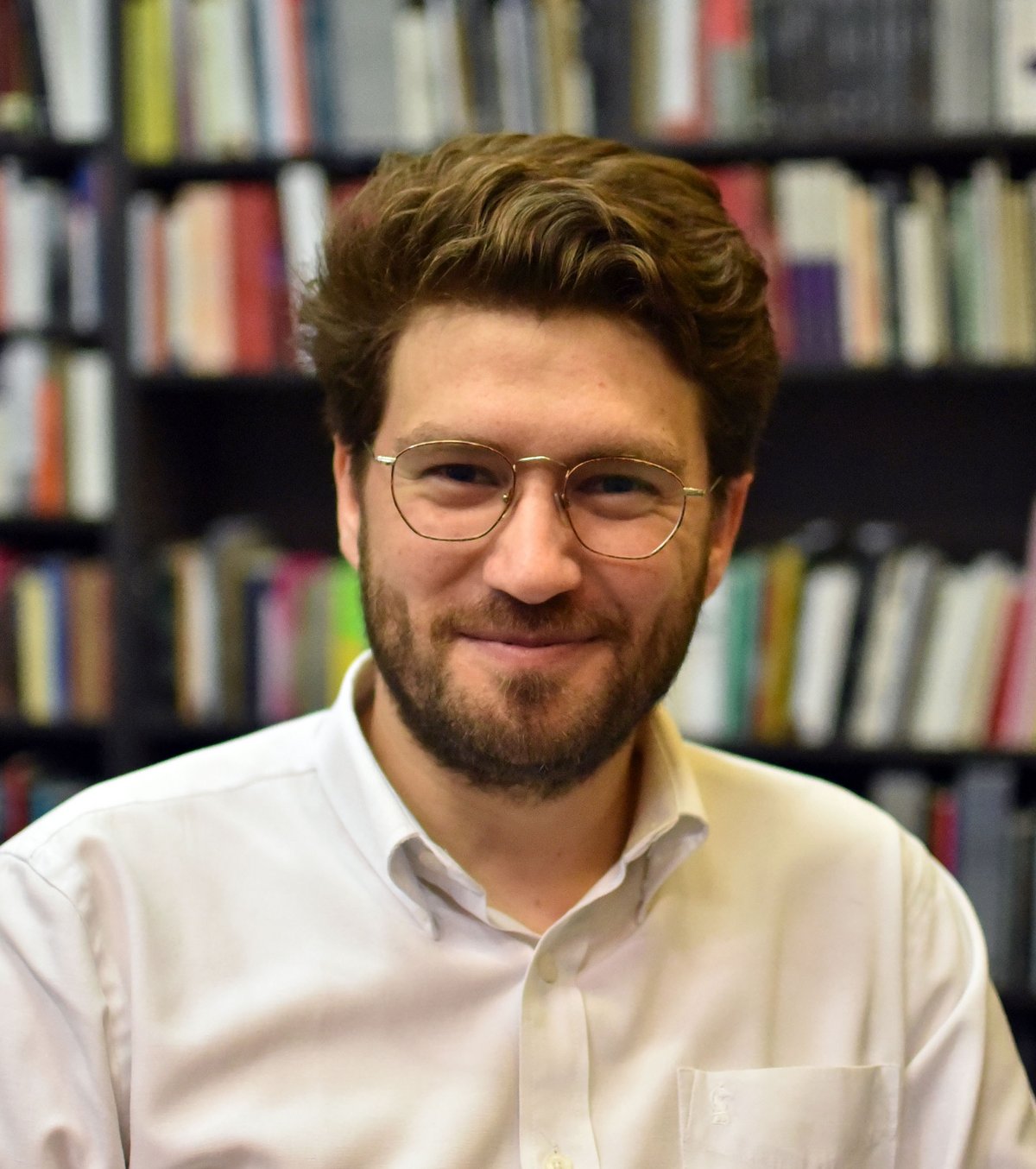
Cartographies of Chilean muralism in Exile
Project members

Cristóbal F. Barria Bignotti
Transnational Cartography of the Chilean Muralist Brigades. Muralism, between the international space and its atmospheres
Cristóbal F. Barria Bignotti (1984, Chile) holds a PhD in Art History from the Sapienza University of Rome. He has recently carried out postdoctoral research at the Centre for Sensory Studies at Concordia University in Montreal, Canada and he is currently a fellow at the Deutsches Forum für Kunstgeschichte in Paris (DFK, Max Weber Stiftung). Barrio Bignotti also is a lecturer of Latin American art history in the curatorial studies programme of the Universidad de Chile, and in the curatorial residency programme of the Centro de Documentación de Artes Visuales del Centro Nacional de Arte Contemporáneo de Chile (CEDOC-CNAC). He is a founder and managing editor of the journal on Latin American Arts and Culture Quaderni Culturali, a journal of the International Italo-Latin American Organization (IILA). He specializes in 20th century Latin American art and art criticism, and in the relationship between the creation of the label “Latin American art” and sensory experiences.
Barria Bignotti is furthermore specialized in Chilean muralism, with his latest research at the DFK Cartographie transnationale des brigades murales chiliennes establishing his focus on the iconographic distribution and on the physical experiences of Chilean muralism in exile.
In the autumn of 2022, Cristóbal Barria Bignotti will be a visiting fellow at the Center for Cultural Inquiry at Constance University, hosted by Sandra Rudman.

Sandra Rudman
Postephemeral murals: testimonies and memory of exile, networks of solidarity and resistance
Sandra Rudman (1982, Belgium) obtained her PhD at the Faculty of Humanities, Department of Literature, Art, and Media Studies at Constance University, where she currently is a researcher and lecturer in Romance literatures and cultural studies. She has carried out research at the Institute for Advanced Studies of the USACH, at the Pontificia Universidad Católica de Chile, and was furthermore trained in Dramatherapy at the DGFT, the German Dramatherapy Association. She is a co-founder of the KoLaF, the Forum for Latin American Studies at the University of Konstanz, and a member of the ZKF, the Center for Cultural Inquiry. Her research interests include autofiction, contemporary Latin American women writers, indigenism and brown literature, theories of reception and of subjectivity, Congolese francophone literature, epistemologies of the south, and decoloniality.
In 2017, she recovered the forgotten historiography of the Chilean mural at Konstanz University and initiated its restauration and preservation process. This project sparked her interest in the larger history of Chilean muralism in exile, in particular in the polyphonic testimonies of murals and their actor networks. She is codirecting a documentary about Chilean Muralism in Exile with filmmaker Daniel Oblitas Baca, and in the autumn of 2022, she will be hosting Cristóbal Barria Bignotti as a visiting fellow at the Center for Cultural Inquiry at Constance University.

Daniel Oblitas Baca
Chilean Muralism in exile, the documentary
Daniel Oblitas Baca (1981, Peru) is a filmmaker and an architect (Universidad Nacional de San Antonio Abad del Cusco) who is currently pursuing the postgraduate Memorias colectivas, derechos humanos y resistencias (Collective memories, human rights, and forms of resistance) at CLACSO, the Latin American Council of Social Sciences. He recently realized the investigative documentary Memorias migrantes. Circular, permanecer, pertenecer (2022) that depicts the participation of Chilean migrants in Germany in the Estallido Social, the social outburst in Chile 2019 – 2021.
His audiovisual exploration of Chilean murals painted in exile seeks to understand the narratives of memory in exile that circulate between the murals and their actor networks. Through the recording of testimonies of former Chilean exiles, Daniel Oblitas Baca explores the hypothesis that the murals form an artistic heritage that contains the memory of exile within international architectural and urban landscapes.
The documentary is realized in cooperation with Sandra Rudman and supported by a ZuKo research grant for interdisciplinary collaborative projects.
